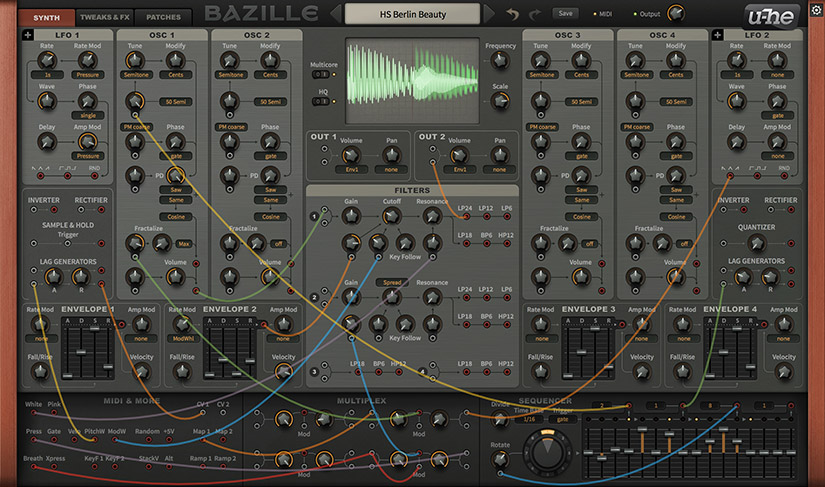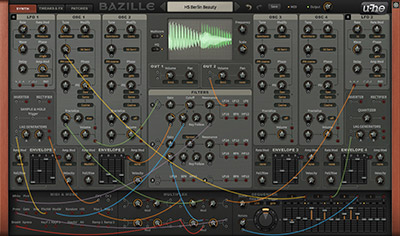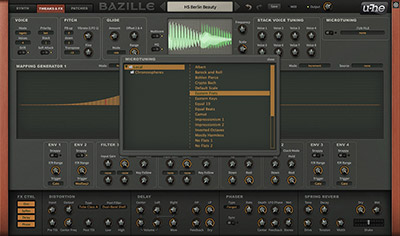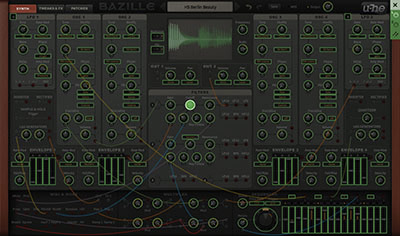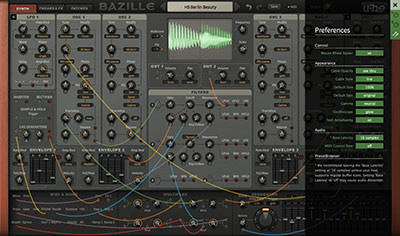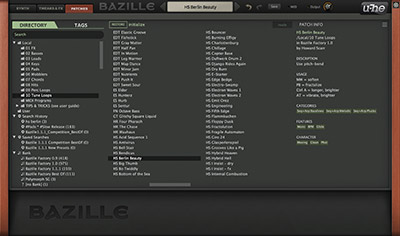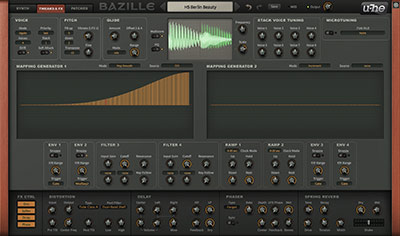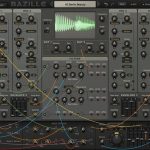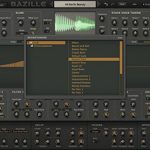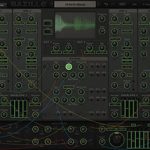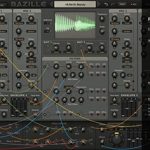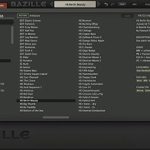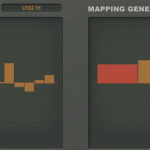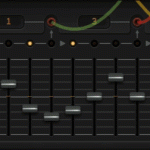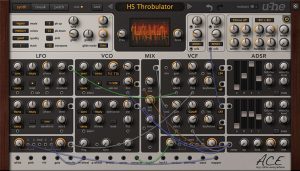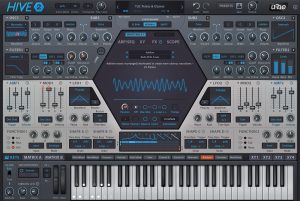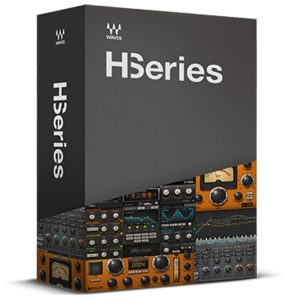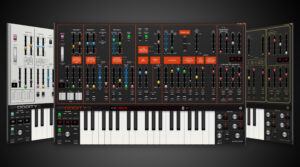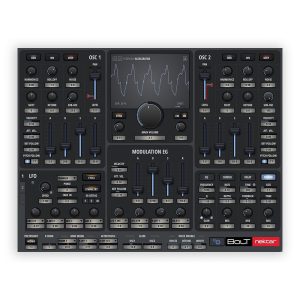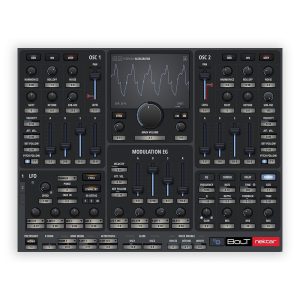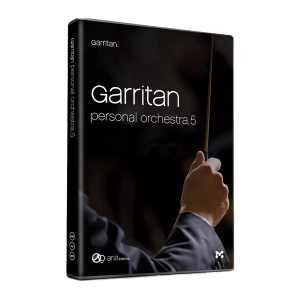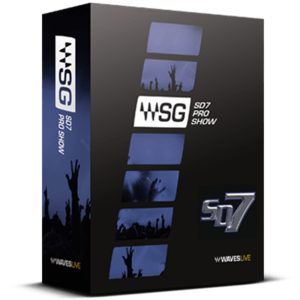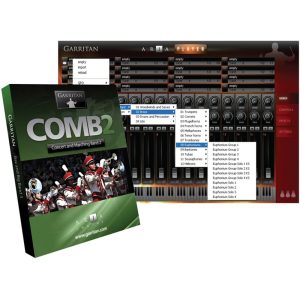Bazille: The second spawn of the Berlin Modular project, Bazille is a large polyphonic modular system with digital (PD, FM based) oscillators, multimode filters and plenty of modulation options. With so much connectivity to explore, patching in Bazille should keep you fascinated for many years – it’s definitely a “geek machine”!
Bazille is a large modular system combining digital oscillators with analogue-style filters and modelled effects, with a flexibility that only modular patching can provide. After ACE, the second spawn of our ongoing Berlin Modular project, this one is a very different, much larger beast…
Those in the know have been waiting for this since 2009
Ultraflexible modules
Bazille is highly unusual for a modular synth. Although the filters are traditional analogue models, the oscillators are unashamedly digital: They combine the two technologies that made digital synthesis affordable (and analogue synths suddenly unfashionable) in the 1980s – FM (frequency modulation, more correctly ‘phase modulation’) and PD (phase distortion).
In Bazille, each oscillator panel has five distinct sections:
Pitch, Phase / FM, Phase Distortion, Fractal Resonance, and the Outputs, each with a modulation input.
Since the 4 main oscillators have a frequency range which starts at zero Hertz, they can be used as synchronized or unsynchronized LFOs or also adopt custom shapes thanks to Bazille’s mapping generators. The oscillators are also capable of all kinds of FM sounds by plugging an audio-frequency source into the phase modulation input.
Mapping generators
The pair of Mapping Generators can be used for a variety of purposes: To reshape modulation sources, to define per-MIDI-note offsets or to step through values e.g. for round-robin effects… There are 4 modes available, and both generators can have maps with up to 128 steps. They are very flexible, allowing custom shapes thanks to the drawing tools and presets accessible with a right-click of the mouse

Multiplex
The little multiple” modules you can find in most analogue modular systems are simple mix/split devices. As Bazille’s output sockets can accommodate several cables, the humble multiple underwent a serious redesign, emerging as something so flexible that we had to rename it Multiplex. The 4 units are very “general-purpose”: They can be used as signal mixers, cross faders, ring modulators, amplitude modulators, and more…
Modulation sequencer
The onboard modulation sequencer lets you set up much more complex movements than are available with a regular LFO. It can be divided into 2, 3 or 4 sections, two of which can also be used as a per-voice note sequencers (steps can trigger envelopes). Also present is a modulatable Rotate control, which lets you morph between up to 8 different sequences.
* About Linux: Before purchasing, please be aware the Linux versions of our plug-ins are still considered beta. While the plug-ins are stable, we are not able to provide the same level of support for these products as we do for the macOS and Windows versions. Support is provided via the Linux and u-he communities on our forum
Filmato:
Features:
- odular, stereo, up to 16-voice polyphonic
- 4 digital oscillators based on phase distortion (PD) with FM and fractal resonance (FR)
- 4 self-oscillating multimode filters with up to 6 parallel outputs each
- 4 ADSR envelopes with Fall/Rise for the sustain stage, overall rate can be modulated
- 2 LFOs with 3 parallel outputs each, unipolar option
- 16-step morphing sequence per voice, with 8 snapshots and 4 output taps
- 2 mapping generators with up to 128 steps, comprehensive drawing tools, presets…
- maps can be used as oscillator waveforms
- 4 Multiplex modules for mixing signals, cross-fading, ring modulation, amplitude modulation etc.
- 4 effects: stereo delay, distortion (6 types), phaser (2 types), spring reverb
- 2x inverter, 2x rectifier, sample & hold, 2x twin lag generators, quantizer
- over 1700 factory presets
- NEW in v1.1.2: Support for Oddsound MTS-ESP
IMPORTANT: The current version of Avid’s toolkit for building AAX plug-ins is not compatible with the Apple SDK needed to build plug-ins for Apple’s new ARM/M1 processors. We are therefore not able to provide updated AAX versions on macOS, neither for Intel CPUs, nor for Apple M1. If you’re a Pro Tools user on macOS, please continue using the previous version of Bazille for the time being. Once the AAX toolkit supports Apple’s M1 processor architecture, we will provide new AAX versions for macOS, with support for Big Sur and both Intel and Apple M1 CPUs.


